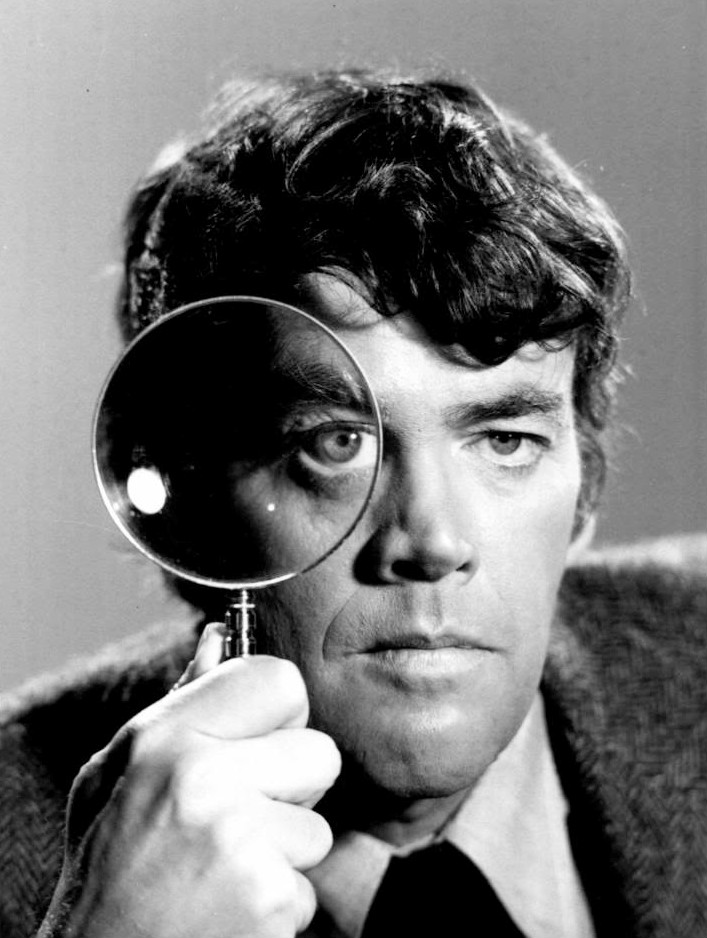
Martin Goodson
The Buddha’s Advice to the Kalamas
This popular sermon to the Kalama tribe is a call to action from the Buddha to us all to evaluate our practices carefully and recognise the importance of staying committed to the path. Taking a bit of time off practice can reveal just how much better we feel about life when we do practice and this increases our faith in it.

Jim Hutton as detective Ellery Queen, posing with a magnifying glass
"Now, Kalamas, don't go by reports, by legends, by traditions, by scripture, by logical conjecture, by inference, by analogies, by agreement through pondering views, by probability, or by the thought, 'This contemplative is our teacher.' When you know for yourselves that, 'These qualities are skillful; these qualities are blameless; these qualities are praised by the wise; these qualities, when adopted & carried out, lead to welfare & to happiness' — then you should enter & remain in them."
(AN 3:65 Kalama sutta)
…
The words of the Buddha to the Kalamas from the Anguttara Nikaya are well known to Western Buddhists. They remind us that the teachings are to be tried out and verified in the training ground of one's own life. It needs to be cautioned, however, that they do not give carte blanche to ignore the parts of the training 'I' do not like; quite the opposite, even our own opinions are subject to test and verification.
We are examining the teachings and seeing how they are to be applied in our own life. The three pillars of Buddhist practice (wisdom, discipline & meditation) and the six states (the six psychological states found on The Wheel of Life), guide us into the practice and allow us to evaluate what we are doing in relation to what is prescribed by Lord Buddha's own teachings. Now, we must keep going and find out for ourselves the value of the practices we have undertaken.
As we enter into the August holiday month, we can take a bit of time off the regular practice and the sitting meditation (Zazen). If we are following a timetable we can relax it and we can also put to one side the Buddhist books . This break gives us an opportunity to find out what happens when we loosen up a bit. There will be both positive and negative effects from a practice point of view and so we can take stock.
When we practice for a length of time it is quite possible that unconsciously we begin to cut corners. How can we know this? We know it because of the effect of doing so. The act of giving myself consistently and wholly (which is our mindfulness practice in daily life), produces a noticeable effect, and so does not doing so. What are these effects?
It is the same with zazen and with the devotional acts such as chanting and maintaining the home shrine. Some might think 'I' do not need to do these practices since zazen or the daily life practice is more important , but why then do people from Buddhist countries still do these things if there is no value to them? Please check that 'my' opinions and self-beliefs do not make a priori judgements without allowing them to be tested. And then, how about the form? We may take up a practice to always close doors to rooms, cupboards and drawers quietly and with devotion and care. We may take up a practice to 'always walk noiselessly'. What is the cumulative effect of committing to such a practice, do we know or do we just imagine that we know?
There are a few months left of this year, and it has been an extraordinary one, many things being beyond one's personal power to affect, so maybe this is a good time to see just how acts of body, speech and mind/heart can in fact make a difference to a life lived according to the Buddha's teachings.
……………………………




